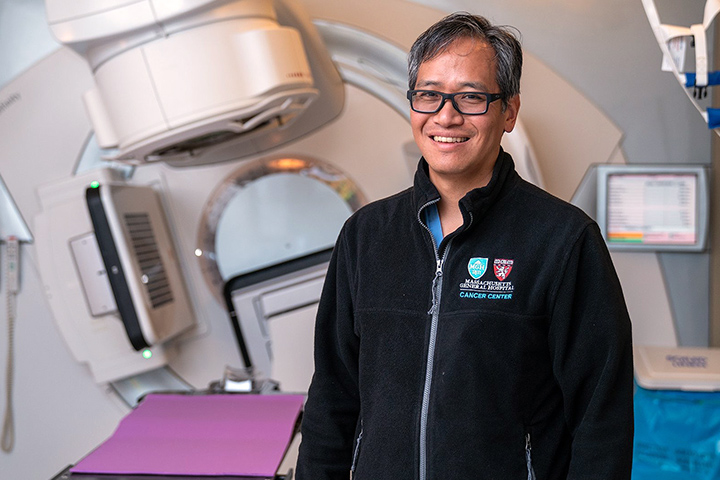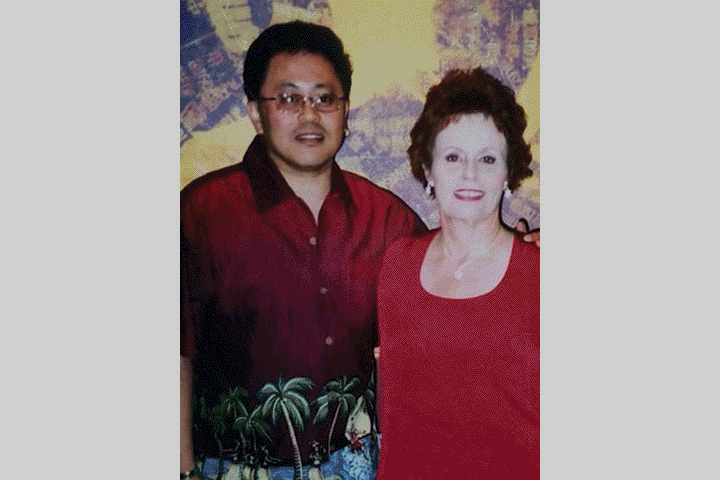New Study Combines Checkpoint Inhibitors with Radiation Therapy to Boost Immune Response

Immunotherapy drugs are providing hope and impressive results for some cancer patients with diseases such as leukemia and lymphoma, as well as for those with solid tumors like melanoma and certain types of lung cancer
However, many cancer patients don’t respond to immunotherapy. And some tumors, like those of pancreatic cancer, are particularly tough to treat. That’s because pancreas tumors are surrounded by a stroma, a dense, fibrous capsule that makes drug delivery difficult. The stroma also makes it tough for the body’s natural defense, the immune system’s T cells, to kill cancer cells. Plus, there are other cells that make for an unfriendly environment for T cells to infiltrate the pancreatic tumor.
To boost the effectiveness of immunotherapy for pancreatic cancer, researchers are looking at a number of options, including adding radiation therapy to an immunotherapy regimen. In one new study, a class of immunotherapy drugs known as checkpoint inhibitors—drugs that release the brakes on the immune system—are being combined with radiation treatment. The goal is to make so-called “cold” tumors like pancreatic cancer tumors that don’t respond well to immunotherapy “hot,” or more immunotherapy-friendly.
Taking a Tumor’s “Temperature”
Classifying tumors as “hot,” “cold” or even somewhere in between is a promising area of research. How a tumor gets its designation as “hot” or “cold” depends on how it is infiltrated by specific immune system cells, explains radiation oncologist Dr. Theodore S. Hong, Director, Gastrointestinal Service, Radiation Oncology, Massachusetts General Hospital (Boston) and Professor, Radiation Oncology, Harvard Medical School. “Very simply, a cold tumor is one that the immune system doesn’t recognize,” explains Hong, who is leading a trial combining two checkpoint inhibitors with radiation therapy in MSS and MSI high colorectal and pancreatic cancer.
“Hot tumors are filled with immune system T cells, making these tumors a lot more sensitive to immunotherapy,” he says. “Cold tumors have fewer T cells and don’t respond as well to immunotherapy. Pancreas cancer tumors are generally immunologically cold. So we’re all looking for new ways to stimulate the immune system to see tumors like those of pancreas cancer. Once the immune system can recognize the tumor then we have a better chance of gaining control over the disease.”
There are special classifications of tumors. MSI stands for microsatellite instability. MSI-H means there is a high degree of instability. MSI happens when mismatch repair genes—genes that correct DNA errors as cells divide—aren’t working properly. MSS (microsatellite stable) patients have tumors with fewer signals that alert the immune system to the cancer. Tumors with high MSI have been shown to be potentially more susceptible to immunotherapy treatment.
A Synergistic Effect Between Checkpoint Inhibitors and Radiation
Combining immunotherapy with radiation therapy is an actively growing area of research. This combination is showing some exciting early results with drugs targeted against two immune checkpoints: programmed death-1(PD-1) and cytotoxic T-lymphocyte antigen 4 (CTLA-4), In this study, Hong and colleagues will be using two checkpoint inhibitors: the antibodies nivolumab and ipilimumab. Nivolumab and ipilimumab work by blocking the PD-1/PD-L1 and CTLA-4 pathways. Ipilimumab halts cancer cell growth while nivolumab causes programmed cell death of cancer cells.
Add radiation into the mix and the effectiveness of these two checkpoint inhibitors may be increased. That’s because radiation can potentially make cancer cells more sensitive to immune approaches and stimulate immunogenic cell death. And it may help T cells recognize and then destroy other tumor cells even at distant sites. This phenomenon is called the “abscopal effect.” The term was coined nearly 70 years ago when researchers discovered the ability of localized radiation to trigger an immune or antitumor response that eradicates cancer cells at sites that are distant to the primary target of the localized radiation, Hong explains.
While radiation is generally used to treat cancers locally and immunotherapies are used to treat cancers systemically, the combination of the two treatment methods creates a “potential synergy,” and a potential way to gain systemic control over the disease, he adds.
“As a radiation oncologist I’m pretty excited about this but I think there is excitement and renewed interest in the entire oncology community,” Hong says. “Radiation is a promising modality that can work synergistically with immunotherapy. With radiation releasing antigens in a patient undergoing immunotherapy, you’re kind of creating a vaccine response. There is a lot of potential here. And what we’re ultimately hoping to see is radiation creating an environment for immunotherapy to do its thing.”
He is hopeful about the future of pancreas cancer treatment. “Pancreatic cancer is the third leading cause of cancer mortality, colorectal cancer is number two, and patients need better treatments,” Hong says. “Integrating new drugs with radiation to enhance the abscopal effect so we can potentially get a widespread immune response is particularly exciting. Radiation is a powerful treatment and finding new ways to harness that power for our patients, to improve their lives and their outcomes, is the goal.”
The phase II trial will recruit 80 patients with MSS colorectal cancer, pancreatic cancer, or MSI high colorectal cancer. Read the trial page to learn more: Nivolumab and Ipilimumab and Radiation Therapy in MSS and MSI High Colorectal and Pancreatic Cancer.





